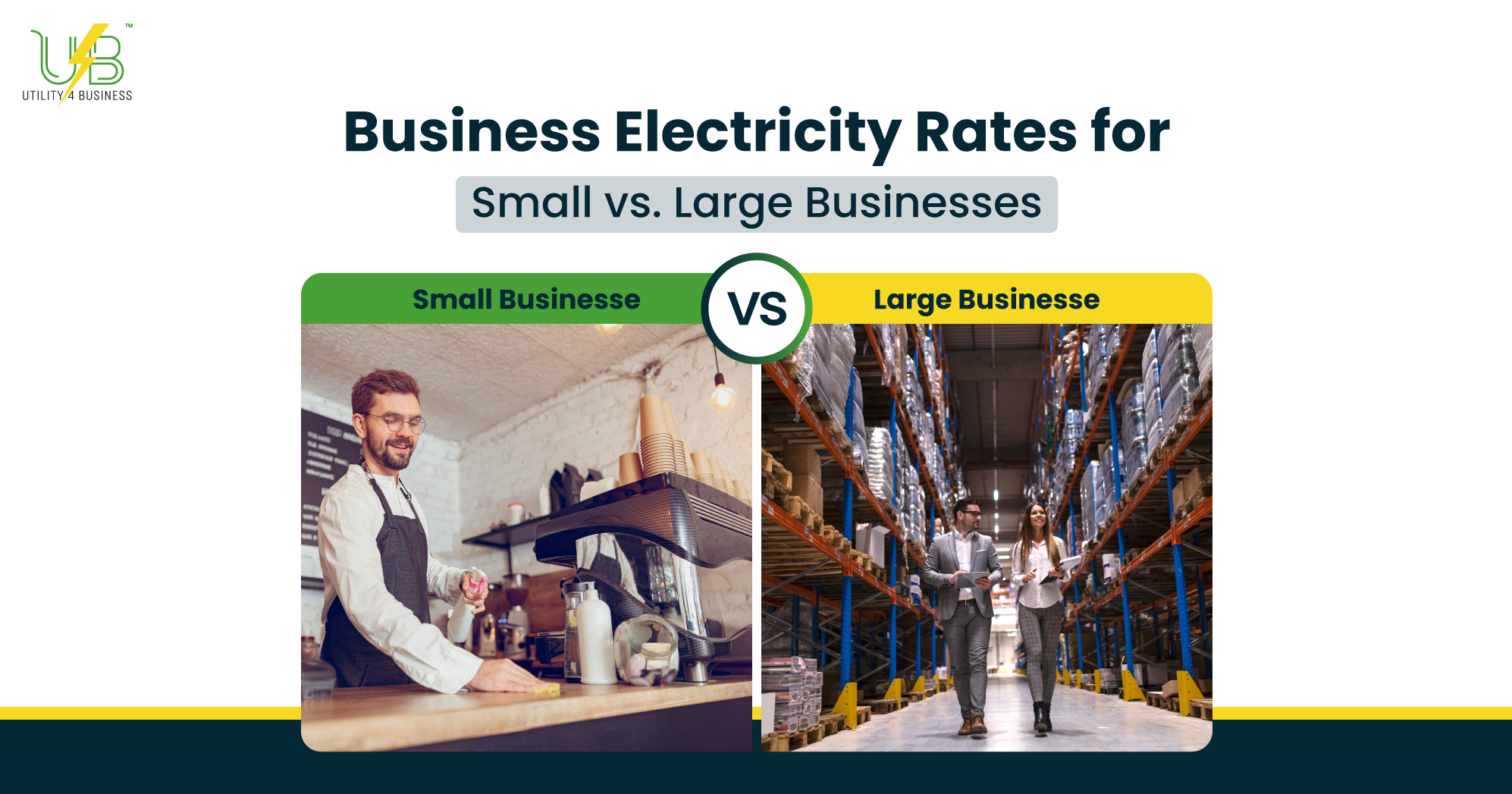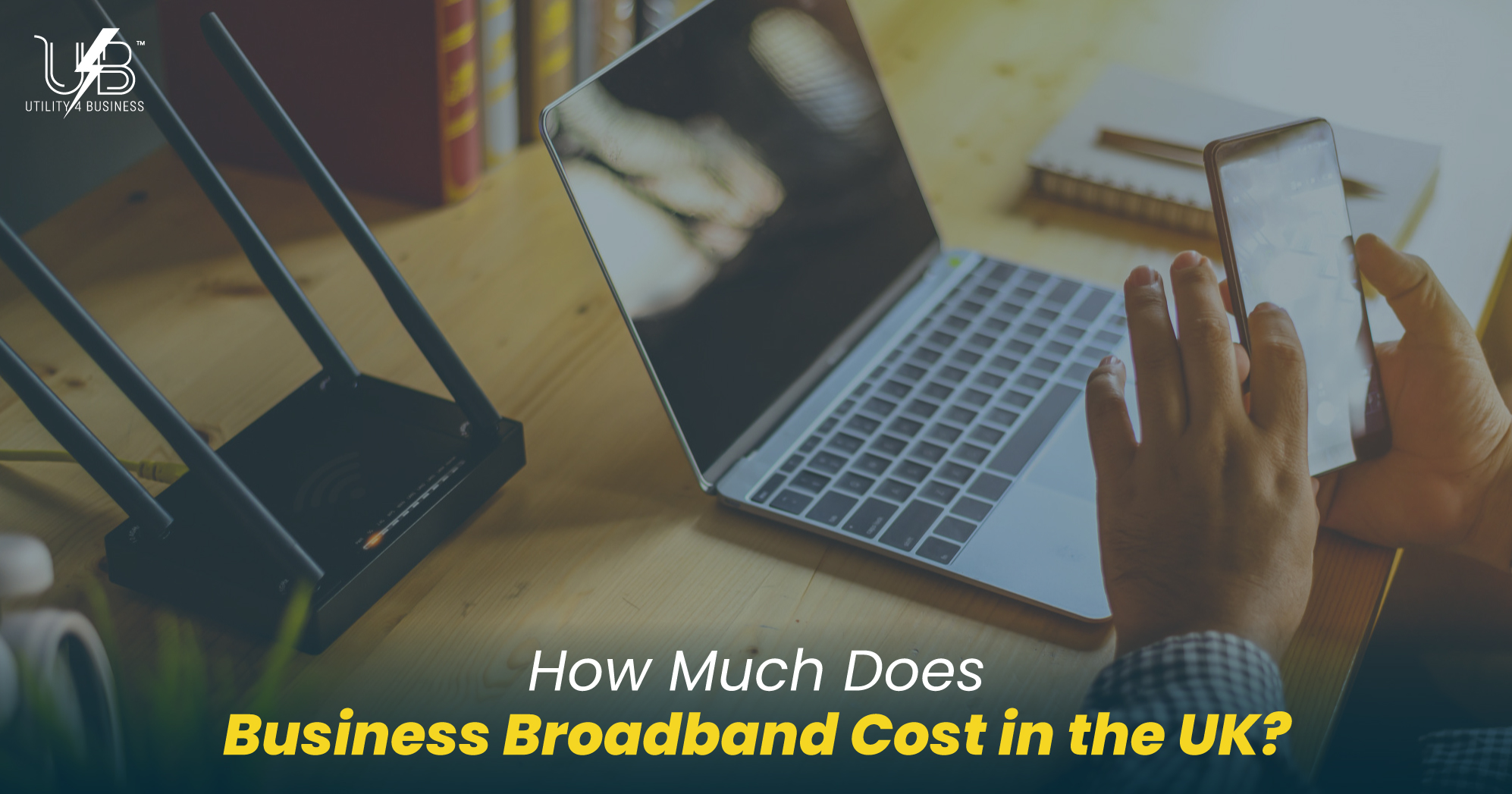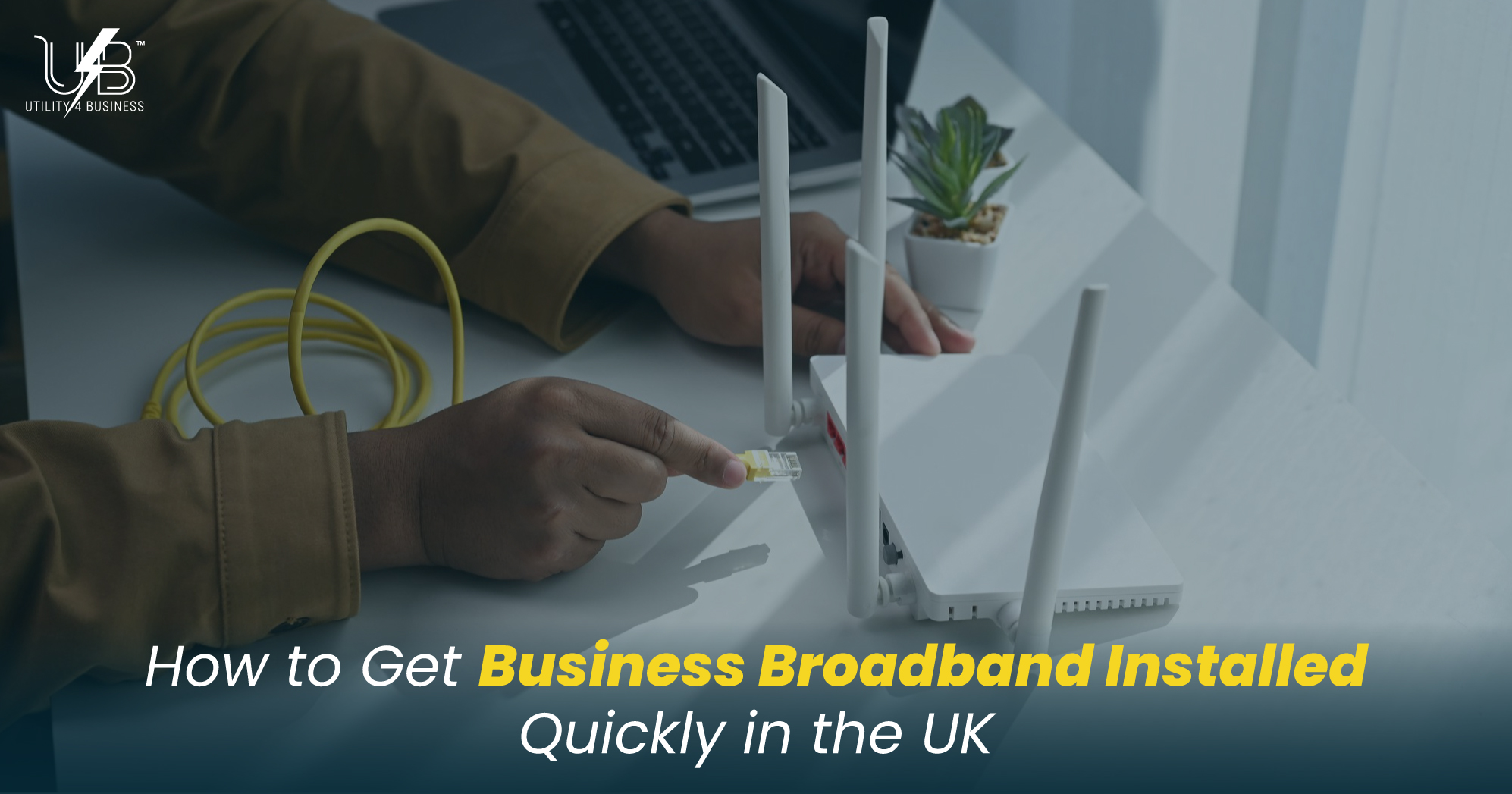Business Electricity Rates for Small vs. Large Businesses
Save Big: Small vs Large Business Power Costs

Have you ever wondered why your electricity bill seems to change so much when your business grows? Electricity costs can have a big impact on a company’s monthly expenses. For a small shop, a coffee bar, or a cosy office, the energy bill can eat into profits. At the same time, a large factory, data centre, or retail chain faces different price challenges because of its high consumption.
Understanding Business Electricity Rates
What Are Business Electricity Rates?
Business electricity rates tell you how much you pay for each unit of power you use. In simple terms, a unit means one kilowatt-hour (kWh). Your energy supplier charges you a rate per kWh based on factors like supply, delivery, and taxes.
On top of that, you might see standing charges. These are daily fees that cover the cost of maintaining the local grid. Demand charges are another piece of the puzzle. They kick in when your business draws a lot of electricity at once.
In essence, your energy bill breaks down into how much electricity you used and extra fees tied to maintaining and delivering that energy.
Key Factors Influencing Rates
Location makes a big difference in what you pay for power. For example, a business in London might face higher rates than a company in a rural UK area because of network costs and regional supply factors.
How your business uses electricity also matters. If you run machines during peak hours, you may pay more than a business that shifts most of its load to off-peak times.
Finally, the type of market where you operate—regulated or deregulated—changes what you can negotiate. In a deregulated market, suppliers compete for your business, which can drive rates lower. In a regulated market, the local utility sets most rates, leaving you with fewer options to shop around.
Small Business Electricity Rates
Characteristics of Small Businesses
Small businesses usually use between 5,000 and 15,000 kWh per year. Think of a corner cafe flipping on lights and coffee machines. Picture a small office where computers hum all day. Or a neighbourhood shop with a few fridges and a POS system.
Because their overall usage sits in that range, they rarely qualify for wholesale or bulk rates. Small businesses electricity rates often rely on standard commercial plans. Their electricity habits revolve around regular opening hours, with little variation in demand spikes.
For many of these companies, understanding their monthly usage inside that 5,000–15,000 kWh window is the first step in controlling costs.
Rate Structures for Small Businesses
A common choice for small businesses is a fixed-rate plan. With a fixed rate, the per-kWh charge stays the same over a set term, usually one or two years. This helps owners forecast expenses without surprises each month.
Another option is a variable-rate plan. In that case, the cost per kWh changes as the wholesale market swings. Variable rates can be risky. If the energy market sees a sudden price jump, small businesses will see higher bills.
Some suppliers offer time-of-use (TOU) rates built for smaller users. TOU plans split the day into peak and off-peak hours.
Challenges for Small Businesses
Small firms often pay more per kWh simply because they don’t use enough electricity to qualify for bulk pricing. A larger user can spread fixed costs across more units, but a small user shoulders those costs on fewer units.
Standing charges can squeeze tight budgets. Even if a shop barely uses power on a slow day, it still pays the daily fee. Small owners also have limited leverage when they talk to energy suppliers.
Large Business Electricity Rates
Characteristics of Large Businesses
Large businesses typically use 25,000 kWh or more each year—often far more. Picture a manufacturing plant running heavy machinery around the clock. Think of a data centre humming with servers that never sleep.
Consider a large retail chain with dozens of outlets, each drawing power for lighting and refrigeration. Since their usage is high, these businesses have a different relationship with their energy supplier. They can tap into custom pricing, and in some markets, they can even buy power on the wholesale market.
Rate Structures for Large Businesses
Large-scale users often receive custom quotes from suppliers. These quotes consider how and when energy is consumed. A key piece is the demand charge. This fee reflects the highest rate at which a business draws power in a given period.
For companies with heavy machinery that draws spikes, demand charges are a big line item. Some large firms can access wholesale market rates directly if their contract allows pass-through pricing. This means they pay the real-time market price plus a small fee.
Advantages for Large Businesses
Because they use so much power, large businesses can negotiate lower rates per kWh. Suppliers know a big account is worth the effort, so they will often provide better deals on transmission and supply fees.
Large firms also have the leverage to ask for concessions on contract length, early termination fees, or green energy add-ons. Another benefit is the ability to invest in advanced energy management systems.
These systems help monitor real-time usage, find inefficiencies, and guide decisions on when to run certain processes. Lastly, large companies can consider renewable energy options like on-site solar arrays. When they can supply a portion of their own power, they further lower dependency on the grid and decrease long-term energy costs.
Comparing Small vs. Large Business Electricity Rates
Cost per kWh
Let’s compare sample numbers to see how rates stack up. In the UK, a small business might pay around 26 pence per kWh under a standard plan. Meanwhile, a large business in the same region could see a rate closer to 25.5 pence per kWh when they commit to a bigger contract. The difference may look small, but when you multiply it by 100,000 kWh or more, the savings add up fast.
Contract Flexibility
Small businesses usually sign shorter contracts, often one year or less. Those deals keep language simple, and terms rarely change from one account to the next. Since small users do not have huge consumption, they do not get to negotiate special clauses or pass-through provisions.
Large businesses, by contrast, can sign multi-year deals with clauses that allow them to shift pricing based on market indices or get rebates if usage falls below a certain threshold. They can ask suppliers to include performance-based guarantees or tie energy rates to certain benchmarks. That level of flexibility simply does not exist for small users.
Additional Fees and Taxes
Standing charges hit small businesses harder in relative terms. If a small firm pays a daily standing charge of 20p, that fee makes up a bigger share of their total bill than for a large factory paying the same fee.
For large businesses, demand charges often matter more. A manufacturing plant may see a huge spike in a single half-hour, so that peak can cost thousands of pounds in demand fees. Tax rules also vary.
In the UK, small businesses pay standard VAT at 20 per cent. Large users may qualify for reduced VAT or even exemptions if they meet certain criteria, such as operating in a charity or nonprofit space. These nuances give big firms another advantage in controlling total energy costs.
Conclusion
Electricity costs affect every business, but the impact varies by size. Small firms face higher per-kWh rates and bear the brunt of standing charges. They have less negotiating power and limited options to shift usage.
Large businesses enjoy volume discounts, custom contracts, and access to wholesale markets. They can invest in advanced energy management and renewable solutions to lower bills further.
Ready to find the best electricity deal for your business? Utility4Business UK is here to guide you every step of the way. Our experts compare hundreds of commercial energy plans to secure savings, handle contract negotiations, and help you switch suppliers with zero hassle.
Find This Article Helpful? Share It Now!
At Utility4Business, we offer top-notch customer support and business utility solutions for businesses across the UK. Consider sharing this article and helping others discover how our expertise can add value to their business success.

Read Our Latest Posts
Explore our latest blog posts and learn how Utility4Business can support your business growth with tailored utility solutions and services. Stay ahead of the curve with the latest information from industry experts and take advantage of our user-friendly comparison services to find the best business deals.


Get Connected
At Utility4Business, our team of experts can help you figure out the highest-value business utility deals that will help your business grow over time.


